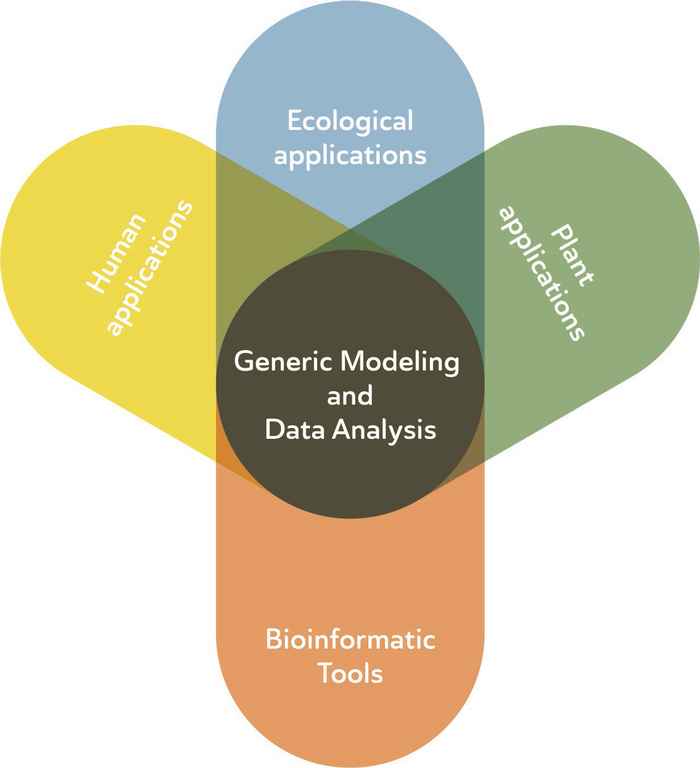Systems Biology
Systems biology has become an intrinsic part of contemporary life-science research. It is based on the notion that to better understand the complexity of biological systems, these should be considered as a whole. Hence, the different intricate components of any living system ought to be studied and contextualized with a combination of experimental and theoretical approaches. This type of research, given its multidisciplinary nature, needs to be executed in collaborative efforts, integrating many scientific disciplines, such as biology, mathematics, physics, biochemistry, bioinformatics, computer science and so on. The main focus is to acquire a (quantitative) understanding of how biological systems change over time and respond to changing conditions.
The subthemes of Systems Biology are:
- Systems biology in plant sciences: there is a growing insight that the interplay between environment (e.g. soil) and plants depend to a large extent on the microbiome of the roots.
Research groups: Plant Hormone Biology (Harro Bouwmeester) - Gut-microbiome-host interactions: this is highly relevant for nutritional interventions and disease development. Many research activities are ongoing in this field and the Amsterdam Microbiome Initiative (AMI) is a focal point of these research activities.
Research groups: Molecular Biology and Microbial Food Safety (Stanley Brul); Biosystems Data Analysis (Age Smilde) - Systems biology in ecology: In ecology there is a growing interest in host-microbe interactions, such as for sponges (Jasper de Goeij), corals (Petra Visser), seagrasses (Gerard Muyzer), algae (Gerard Muyzer/Susanne Wilken), insects (Astrid Groot), as well as in the role of microbes in biogeochemical cycles in terrestrial and aquatic environments, such as freshwater lakes (Gerard Muyzer/Jef Huisman).

Next to an overlap by focussing on host-microbiome interactions in different organisms or environments, all subthemes make use of generic modelling and data analysis. This encompass methods to combine top-down and bottom-up systems biology methods such as:
- Combining genome-scale models with measured data of different omics types
- Combining mechanistic models with measured data of different omics types
- Applying causal modelling to omics data
- Imposing prior biological and biochemical knowledge on methods fusing omics data
For more information from the research groups themselves, check their website: systemsbiology.amsterdam.